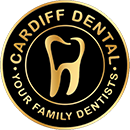8 Simple Ways To Stop Your Sugar Cravings
 In an effort to limit the damage that sugar does to our teeth and our health, a group of Australian health experts, doctors, celebrities and scientists who want to raise an awareness of avoiding extra usage of sugar, launched new national campaign called SugarByHalf. Why? Because Australians consume too much sugar.
In an effort to limit the damage that sugar does to our teeth and our health, a group of Australian health experts, doctors, celebrities and scientists who want to raise an awareness of avoiding extra usage of sugar, launched new national campaign called SugarByHalf. Why? Because Australians consume too much sugar.
The World Health Organization recommends limiting added sugar consumption to fewer than six teaspoons per day. Considering that the average can of Coca Cola contains 10 teaspoons of sugar we have a lot of cutting down to do in order to meet the limit.
And sugar does not just lead to fat, it also destroys our teeth. Shockingly, by the age of six years old 50% of Australian children have decay in their baby teeth and by the time they reach age 12 50% have decay in their adult teeth as well.
The damage that sugar can do to our teeth and our health is why Cardiff Dental urges you to substantially cut back on your sugar consumption.
Sugar and Health
Sugars are one of the main causes of dental decay. Bacteria in your mouth produce acids from dietary sugars, and they concentrate in dental plaque, a gooey film that collects on surfaces of teeth. This causes increased oral acidity, which leads to break down of the enamel and dentin of the teeth resulting in cavities. Decay weakens teeth, causing them to crack and break. This, in turn, causes bite problems and issues eating and chewing. If eating is affected, nutritional problems take place.
Sugar is also bad for general health:
- Sugar can suppress a person’s immune system.
- Sugar feeds cancer cells.
- Sugar can interfere with calcium absorption.
- Sugar can put a person at an increased risk of heart disease.
- Sugar can cause autoimmune diseases.
- Sugar can cause a loss of tissue elasticity and function.
- Sugar can weaken eyesight through poor blood circulation.
- Sugar can cause behavioral issues and is a major factor in ADD and ADHD.
- Sugar contributes to a host of other issues including gallstones, appendicitis, hemorrhoids, varicose veins, increases in systolic blood pressure, and a decline in Vitamin E levels.
Tips for Quitting Sugar
The best tip is “don’t’ wait!” Don’t plan to quit sugar tomorrow. Just start!
- Plan It Out. Before you begin, make a plan. Write out every meal you’ll eat for the first two weeks.
- Read Labels. No matter how safe you think the food is that you’re buying – read the label. And learn all the “hidden” names that sugar can go by (See tip #5).
- Find Replacements. When you find something that you regularly purchase is hiding lots of sugar, make a note of it and find a regular replacement.
- Avoid the “Sugar” Aisles. Many shelves (often the inner aisles) of your grocery store are full of hidden and not-so-hidden-sugar. Avoid aisles with sugar-laden foods.
- Know The Hidden-Sugar Signals. Processed food manufacturers are genius at hiding sugar in odd places, there are a handful of signals that almost always denote its presence.
“Low Fat” / “Reduced Fat” / “Fat Free”
These almost always have sugar added – usually in the form of high-fructose corn syrup.
Ingredients ending in “ose” = sugar.
There are many of these, but they all have one thing in common. They mean sugar. - Indulge In “Safe” Foods. If you really like the taste of something that doesn’t contain sugar, allow yourself to enjoy that “safe” food when a sugar craving arises.
- Team Up! It’s always easier to follow a health-plan if you have a buddy. If you can’t find a buddy, there are support groups in the community and online.
- Attend to your dental care by drinking water after consuming sugars, brushing and flossing your teeth regularly, and visiting your Cardiff dentist at least twice a year!
FREE Check-up at Cardiff Dental
- 6-monthly FREE checkup for kids under 18 years of age
Discover our latest offers for you and your entire family. Go to our special offers page today.
Contact us today on (02) 4954 6888 or book your appointment online.
